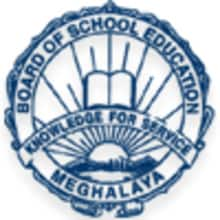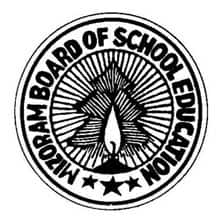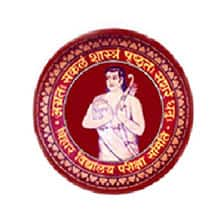Showing 100 Exams
Intermediate
2 Times/year
Telangana State Board of Intermediate Education
19 Apr'26 -19 Apr'26 - Exam Date | Offline
April/May session - Telugu(305),Urdu(306), Hindi(301), Arabic (310)
offline
Matriculate
1 Time/year
Council For The Indian School Certificate Examinations
1 Mar'26 -1 Mar'26 - Exam Date | Offline
Mathematics
Admit Card | Eligibility | Exam Pattern | Preparation Tips | Result | Question Paper | Dates | Syllabus | FAQs
offline
Intermediate
1 Time/year
Goa Board of Secondary and Higher Secondary Education
23 Feb'26 -23 Feb'26 - Exam Date | Offline
Chemistry, Secretarial Practice, Secretarial Practice (CWSN)
Eligibility | Exam Pattern | Admit Card | Result | Preparation Tips | Question Paper | Dates | Syllabus | FAQs

offline
Matriculate
1 Time/year
Meghalaya Board of School Education
Eligibility | Exam Pattern | Admit Card | Preparation Tips | Result | Question Paper | Dates | Syllabus | FAQs

offline
Intermediate
1 Time/year
Mizoram Board of School Education
5 Mar'26 -5 Mar'26 - Exam Date | Offline
History/Mathematics/ Business Mathematics
offline
Intermediate
1 Time/year
Directorate of Government Examinations
1 Accepting Colleges
2 Mar'26 -2 Mar'26 - Exam Date | Offline
Part I - Tamil and other languages
offline
Intermediate
1 Time/year
Board of Seconday Education, Odisha
1 Mar'26 -1 Mar'26 - Exam Date | Offline
(Arts/Science): Geography
Eligibility | Exam Pattern | Preparation Tips | Admit Card | Result | Question Paper | Dates | Syllabus | FAQs
offline
Intermediate
1 Time/year
Uttarakhand Board Of School Education
28 Feb'26 -28 Feb'26 - Exam Date | Offline
Psychology, Education, Mathematics Agricultural
Eligibility | Exam Pattern | Preparation Tips | Question Paper | Result | Admit Card | Dates | Syllabus | FAQs
offline
Matriculate
1 Time/year
Uttarakhand Board of School Education
28 Feb'26 -28 Feb'26 - Exam Date | Offline
Home Science
Result | Eligibility | Exam Pattern | Admit Card | Question Paper | Preparation Tips | Dates | Syllabus | FAQs
offline
Matriculate
1 Time/year
Tripura Board of Secondary Education
6 Mar'26 -6 Mar'26 - Exam Date | Offline
Social Science (Hist & Pol.Sc), Social Science (Eco & Geo)
Admit Card | Eligibility | Exam Pattern | Preparation Tips | Result | Question Paper | Dates | Syllabus | FAQs
offline
Intermediate
1 Time/year
Board of School Education Haryana
1 Mar'26 -1 Mar'26 - Exam Date | Offline
Physics, Economics
Admit Card | Eligibility | Exam Pattern | Result | Preparation Tips | Question Paper | Dates | Syllabus | FAQs
offline
Intermediate
1 Time/year
Jammu and Kashmir State Board of School Education
2 Mar'26 -2 Mar'26 - Exam Date | Offline
Summer Zone - Biology (Botany & Zoology) Statistics /Political Science Statistics/ Accountancy
offline
Matriculate
1 Time/year
Board of Secondary Education, Rajasthan
1 Feb'26 -27 Feb'26 - Admit Card Date | Online
Eligibility | Exam Pattern | Question Paper | Admit Card | Preparation Tips | Result | Dates | Syllabus | FAQs
offline
Intermediate
1 Time/year
Himachal Pradesh Board of School Education
3 Mar'26 -3 Mar'26 - Exam Date | Offline
Sanskrit
Eligibility | Exam Pattern | Admit Card | Question Paper | Preparation Tips | Result | Dates | Syllabus | FAQs
offline
Intermediate
1 Time/year
SilverZone Foundation
30 Aug'26 -31 Aug'26 - Application Date | Offline
Intermediate
1 Time/year
Telangana State Board of Intermediate Education
1 Mar'26 -1 Mar'26 - Exam Date | Offline
Mathematics paper-IA, Botany paper-I, Political Science paper-I
offline
Matriculate
1 Time/year
Board of Secondary Education, Assam

offline
Matriculate
1 Time/year
Bihar School Examination Board
Question Paper | Eligibility | Exam Pattern | Admit Card | Answer Key | Result | Mock Test | Preparation Tips | Dates | Syllabus | FAQs
Matriculate
1 Time/year
SilverZone Foundation
online/offline
Matriculate
1 Time/year
SilverZone Foundation
30 Aug'26 -31 Aug'26 - Application Date | Online
Last date to apply